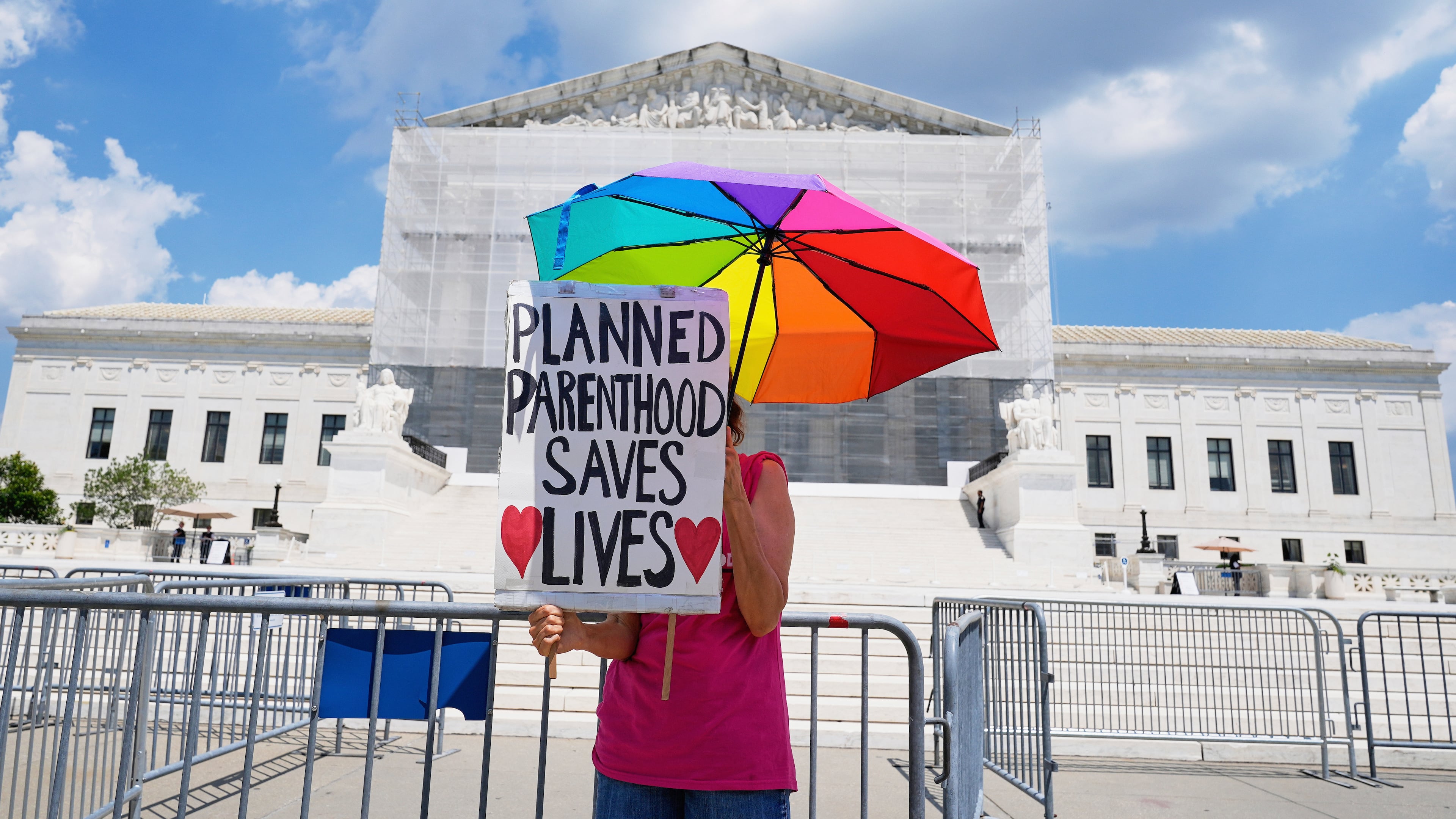Appeals court weighs arguments on law cutting Medicaid funds to Planned Parenthood

Attorneys representing Planned Parenthood argued Wednesday that Congress cannot strip the nation's largest abortion provider of its Medicaid funding with the hope that doing so may result in fewer abortions.
“The only fact in the record is that when you defund Planned Parenthood members from providing non-abortion care, the result is an increase in abortions,” said Planned Parenthood attorney Alan Schoenfeld to the 1st Circuit Court of Appeals in Boston.
The arguments are the latest development in a legal battle over a spending law passed by Congress — and then signed into law by President Donald Trump in July — that ended Medicaid reimbursements for Planned Parenthood.
Under the tax and spending cut bill, organizations that provide both abortions and receive more than $800,000 a year in Medicaid reimbursements would no longer be eligible to receive such funding.
Planned Parenthood quickly sued to block the law, saying it violates the Constitution, while anti-abortion activists applauded the legislation.
However, in September, the 1st Circuit Court of Appeals overturned a lower court decision and said the law could take effect while the U.S. government's attorneys appealed the initial ruling.
On Wednesday, Justice Department attorney Eric McArthur said the federal government stressed that Planned Parenthood was not specifically named in Trump's tax and spending cut law and that officials were still finalizing the guidance over who specifically would qualify.
“That guidance hasn’t been issued yet,” McArthur said. “And so I’m not in a position to tell you what it will say.”
In a report released ahead of the hearing, Planned Parenthood said the legislation cost $45 million in September alone as clinics across the country paid for treatment for Medicaid patients out of pocket — a rate that the organization says is unsustainable.
Nearly half of Planned Parenthood’s patients rely on Medicaid for health care aside from abortions, which was already not covered by the federal insurance program that serves millions of low-income and disabled Americans.
Legal fight
Planned Parenthood Federation of America and its member organizations in Massachusetts and Utah, as well as a major medical provider in Maine, filed lawsuits against Health and Human Services Secretary Robert F. Kennedy Jr. in July. The Maine provider has been forced to stop it's primary care services while its lawsuit works its way through the courts.
In the meantime, seven states — California, Colorado, Massachusetts, New Jersey, New Mexico, New York and Washington — have directed state funds to compensate for lost federal Medicaid reimbursements.
That has covered roughly $200 million of the $700 million that the organization spends annually on Medicaid patients, according to Planned Parenthood.
In light of the shortfall, some clinics will force Medicaid patients to pay out of pocket while others will close altogether, adding to the 20 Planned Parenthood affiliated clinics that have closed since July and the 50 total that have closed since the start of Trump’s second term.
“The consequence is for patients who are going to be forced to make impossible choices between essential services,” Planned Parenthood President and CEO Alexis McGill Johnson said in an interview with The Associated Press.
Abortion at the heart of the debate
Carol Tobias, president of the National Right to Life Committee, said Trump’s legislation is a step in the right direction. Even though federal tax dollars aren’t used for abortions directly, she said taxpayers are contributing to abortion services even if they are morally or religiously opposed since Medicaid reimbursements help organizations stay afloat that provide them.
“To be forced to pay for that is just very objectionable,” Tobias said.
She suggested Planned Parenthood could stop offering abortions if it wanted to keep providing medical care to vulnerable populations.
Planned Parenthood's president has doubled down on the organization’s commitment to providing abortions.
“The government should not play a role in determining any pregnancy outcomes,” Johnson said.
A range of services hit
Planned Parenthood is the country's largest abortion provider, but abortions only constituted 4% of all its medical services in 2024, according to the organization's annual report. Testing for sexually transmitted infections and contraception services make up about 80%. The remaining 15% of services are cancer screenings, primary care services and behavioral health services.
Jenna Tosh, CEO of Planned Parenthood California Central Coast, said in an interview that the Medicaid cuts threaten abortion and non-abortion medical care in equal measure. Roughly 70% of patients who use Planned Parenthood California Central Coast rely on Medicaid, she said.
“Many of our patients, we are their primary provider of health care,” Tosh said. “You really start pulling at the thread of the entire health care safety net for the most vulnerable people."
___
The story has been corrected to show that the hearing Wednesday is before a judicial panel of the 1st Circuit Court of Appeals, not before a federal judge.

